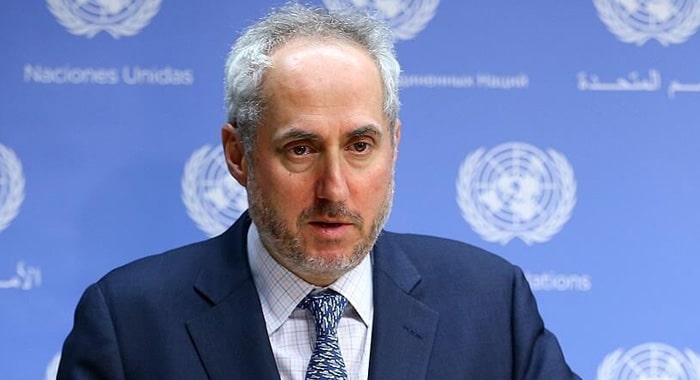The United Nations has voiced firm support for the International Criminal Court’s independence after the court issued landmark arrest warrants for two top Taliban figures marking the first time the group’s leadership faces international legal action over alleged crimes against humanity. In a press briefing, UN spokesperson Stéphane Dujarric underscored that the ICC operates independently of the UN Secretary-General and emphasized the global obligation to respect the court’s authority. “We have consistently raised concerns—both politically and through our human rights offices—regarding the ongoing violations of women’s and girls’ rights in Afghanistan,” he said.
The ICC’s Pre-Trial Chamber II announced on Tuesday that arrest warrants had been issued for Hibatullah Akhundzada, the Taliban’s reclusive supreme leader, and Abdul Hakim Haqqani, head of the group’s judiciary, over a catalogue of alleged atrocities committed under their rule.
The court said there are “reasonable grounds to believe” that both men bear criminal responsibility for a widespread and systematic campaign of repression that began after the Taliban’s return to power on August 15, 2021, and continued at least until January 20, 2025.
The charges include gender-based persecution, torture, enforced disappearances, unlawful imprisonment, and the denial of fundamental rights—particularly against women and girls—crimes the ICC classifies as crimes against humanity.
In response, Taliban officials rejected the warrants and dismissed the ICC’s authority, claiming the court has no jurisdiction over Afghanistan or its internal affairs. However, Afghanistan remains a state party to the Rome Statute, granting the court legal jurisdiction over crimes committed within its territory.
The development is seen as a watershed moment in international accountability efforts, particularly amid mounting global outrage over the Taliban’s treatment of women, dissenters, and minority communities since the fall of Kabul.
Headquartered in The Hague, the ICC is the world’s only permanent international tribunal for prosecuting individuals for genocide, war crimes, and crimes against humanity. The move against Akhundzada and Haqqani is a rare step toward confronting impunity at the highest levels of the Taliban regime.
The arrest warrants underscore what rights advocates describe as a *shifting international posture—from condemnation to accountability—*as the Taliban continues to enforce a regime marked by repression, exclusion, and fear.





